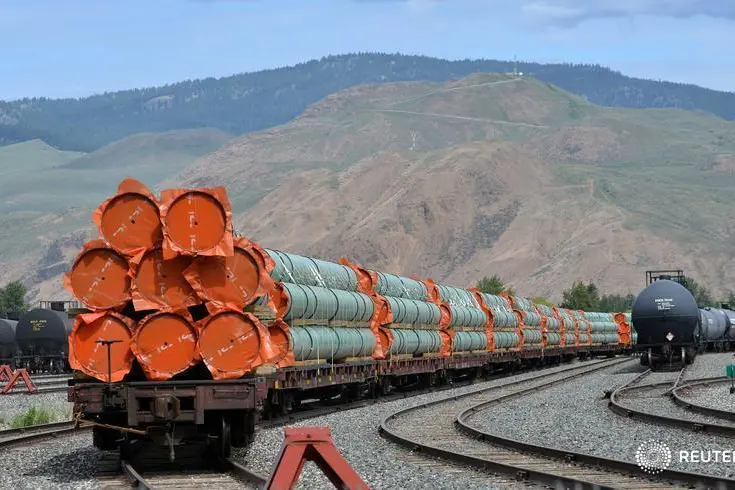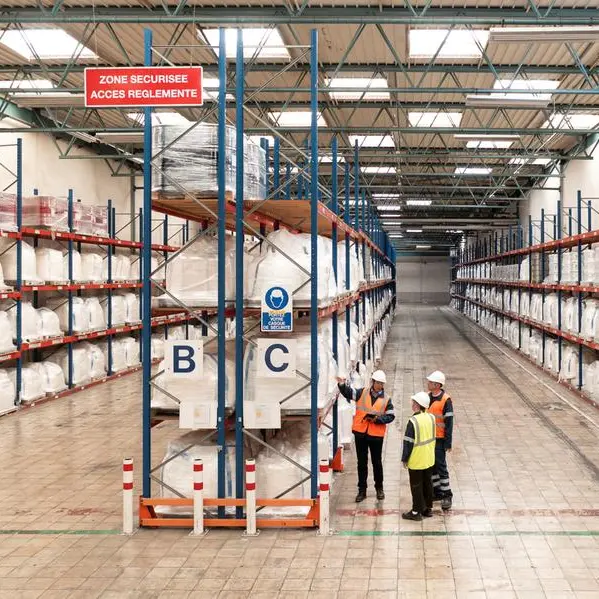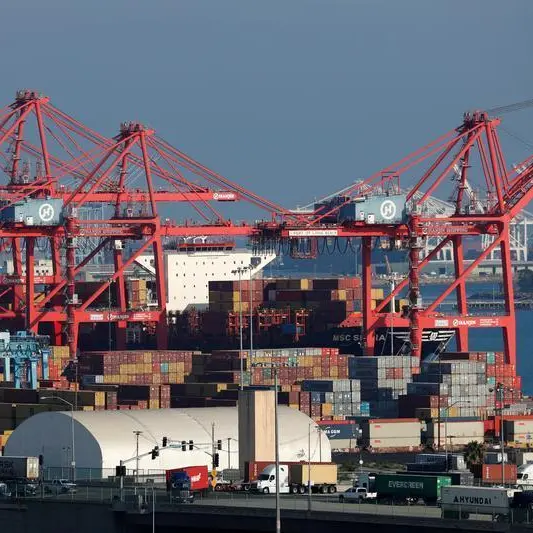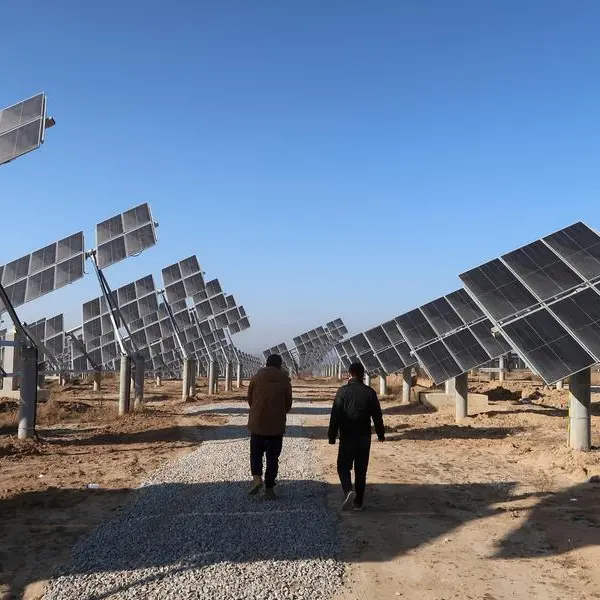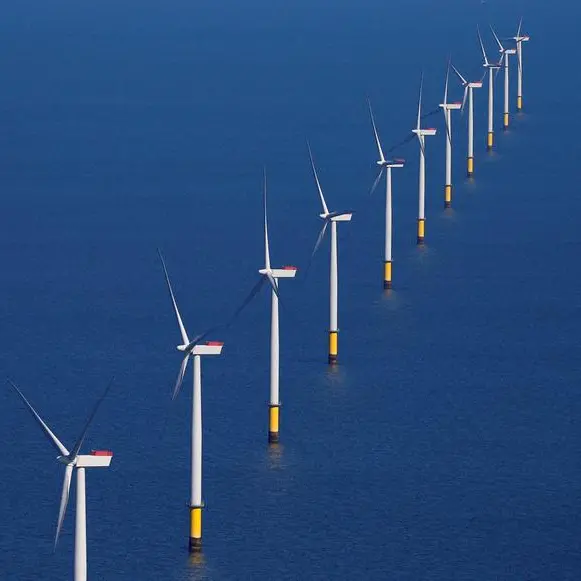PHOTO
Canada faces an uphill battle to recoup the roughly C$35 billion ($25.74 billion) in taxpayers' money it has sunk into the Trans Mountain oil pipeline, as uncertainty over shipping tolls and a limited pool of buyers cloud the asset's unique strategic value.
The federal government plans to sell Trans Mountain once a long-delayed expansion to nearly triple the flow of crude from Alberta to Canada's Pacific Coast is completed early next year. Last month, Ottawa started informal talks with Indigenous communities located along Trans Mountain's path, an early step in divesting the soon-to-be 890,000 barrel-per-day pipeline.
The sale, however, has seen muted interest from other pipeline operators due to higher financing costs, while long-term investors like the pension funds are likely to steer clear on concerns about exposure to fossil fuel assets, analysts said.
Prime Minister Justin Trudeau's Liberal government bought Trans Mountain in 2018 for C$4.5 billion to rescue the expansion project, which has struggled with years of regulatory delay and massive cost overruns. He argued it was needed to alleviate a crude transportation bottleneck that costs Canadian oil producers billions annually in forgone export revenue.
The expansion costs, however, have now quadrupled to C$30.9 billion and could rise further.
A Reuters survey of five analysts and investors valued Trans Mountain between C$15 billion and C$25 billion, based on factors including projected earnings and oil shipping tolls.
"We'll have to see how much the government is going to eat," said Ryan Bushell, president of Newhaven Asset Management, which holds shares in energy infrastructure firms.
The federal government said the Trans Mountain expansion would ensure Canada receives fair market value for its resources.
"It is an important investment in the Canadian economy, generating significant operating revenues and creating well-paying middle-class jobs," said finance ministry spokesperson Katherine Cuplinskas.
Trans Mountain Corp (TMC) CEO Dawn Farrell told local media last week the sale could wrap up by early 2025, just as Canada heads into a federal election. The government crystallizing a loss during an election year could attract taxpayers' ire.
Trans Mountain offers strategic value as it is the only pipeline taking crude from Canada's oil patch to the Pacific, and on to Asian refining markets. High regulatory hurdles for major Canadian infrastructure projects could make it the last pipeline of its kind.
But uncertainty surrounding tolling makes valuing the business challenging.
The vast majority of Trans Mountain's long-term value will be determined by tolls that are still not finalised, said Stifel Canada analyst Michael Dunn, adding he would be "surprised" if the government recovered its full investment in a sale.
Long-term contracts cover 80% of the pipeline's capacity and shippers, including Cenovus Energy, argue a portion of TMC's proposed base toll is too high.
Even if regulators rule in TMC's favor, tolls will cover less than half the construction cost, the Tsleil-Waututh First Nation, which is an intervener in the tolling dispute and opposes the pipeline, said in a regulatory filing.
SEEKING BUYERS
The difficulty of building new pipelines and guaranteed tolling revenue makes Trans Mountain attractive to First Nations, said Paul Poscente, CEO of Axxcelus Capital, which advises Indigenous communities on infrastructure investments.
"It's hard to imagine...that a pipeline like Trans Mountain would ever be built again," Poscente said.
Project Reconciliation, an Indigenous-led group, and Chinook Pathways, a partnership between Pembina Pipeline Corp and Western Indigenous Pipeline Group (WIPG), have said they will bid for a stake in the pipeline.
But Pembina now intends to buy a 20-30% stake, less than the 50% originally envisaged, due to the rising costs, CEO Scott Burrows said on an August earnings call.
Project Reconciliation said there were no updates on the sale process and Chinook Pathways did not respond to request for comment.
Pembina's rival Enbridge is not interested in bidding, executive Marc Weil told Reuters last month
TC Energy, which owns the Keystone pipeline that carries crude from Alberta to the U.S. Gulf Coast, is spinning off its oil pipeline business, making it an unlikely bidder, analysts said. TC did not respond to a request for comment.
Dave Szybunka, senior portfolio manager at Canoe Financial in Calgary, said the pool of potential bidders and the price they can pay is smaller than it would have been two years ago due to a decline in their stock price and challenging financing environment.
Pembina shares are down 10% so far this year, TC is off 11.7% while Enbridge has dropped 15.7%.
"Historically groups like pensions would have been all over this but they don't want to be tied to the negative perception of hydrocarbons in western Canada," Szybunka said.
($1 = 1.3595 Canadian dollars)
(Additional reporting by Rod Nickel in Winnipeg and Steve Scherer in Ottawa Editing by Denny Thomas and Marguerita Choy)
